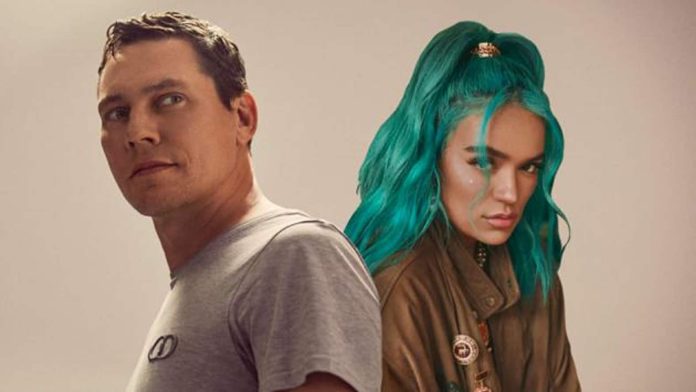
In the dynamic world of music, creativity is celebrated. However, sometimes, the thin line between inspiration and infringement becomes the subject of legal scrutiny. Such is the case with the recent controversy involving Colombian singer Karol G and Tiësto. The controversy is over their song ‘Don’t Be Shy‘. A legal storm has erupted as Cuban-American musician and songwriter Rene Lorente filed a lawsuit in the United States District Court for the District of Puerto Rico. His lawsuit is accusing Karol G of plagiarism in her hit track ‘Don’t Be Shy’. Below, we will dive into the intricacies of this legal battle and understand the gravity of the allegations.
Allegations of Copyright Infringement: The Echoes of ‘Algo Diferente’
The lawsuit centers around the claim that ‘Don’t Be Shy’ contains significant similarities with an original song titled ‘Algo Diferente‘. The “original track” was composed by Rene Lorente back in 1998. The court document released by the authorities sheds light on the accusation. The accusation cites copyright infringement and plagiarism as the core issues. The legal dispute emerges from an extensive analysis of the musical, lyrical, and structural elements of both compositions. It has been contended that these similarities extend beyond the realm of common influence or coincidence. Additionally, it raises questions about artistic integrity and copyright ownership of Karol G’s ‘Don’t Be Shy’.
Unveiling Karol G’s Legal Battle: Lorente’s Pursuit of Justice
Firstly, Rene Lorente’s legal pursuit seeks justice for what he perceives as a breach of his creative rights. Secondly, the plaintiff has demanded a substantial sum of 3 million dollars. He attributes this claim to the mental anguish, humiliation, damage to reputation, and embarrassment caused by the alleged plagiarism. Thirdly, the lawsuit document emphasizes that the resemblances between the two songs are far from coincidental. Furthermore, Lorente asserts that any resemblance amounting to derivation should be treated as outright plagiarism, copyright theft, and infringement of his creator’s rights.
The lawsuit raises important questions not only about the artistic process but also about creative boundaries. Additionally, it also raises important questions about the responsibilities of artists in the age of musical collaboration. As the legal battle unfolds, the music industry and its enthusiasts await the court’s verdict, which could potentially set a precedent for similar cases in the future. The case underscores the significance of distinguishing between inspiration and appropriation in the realm of music creation, ultimately reinforcing the importance of respecting intellectual property rights.
In the end, the collision of artistic visions and legalities reminds us of the delicate balance between artistic expression and protecting creators’ rights. Lastly, the outcome of this lawsuit could have far-reaching implications. Furthermore sending ripples through the music industry and prompting a reevaluation of the way artists collaborate and draw inspiration from each other.
In conclusion, give the two tracks a listen below, and let us know what you think.
[H/T] – MARCA


